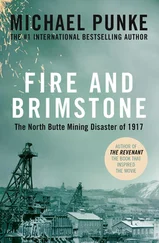“Dr. Parker.”
“Yes,” I said, rising out of my chair to greet the social worker with a handshake.
“Thank you so much for coming.”
“It’s no problem,” I said. “I’d like to help wherever I can.” Even though I sensed the words flowing easily out of my mouth, I felt somewhat displaced because despite the woman’s polished presence, equanimity, and professional manner, I knew that all this was just a veneer. It was the part of herself that she presented to me, and it was through me that this burnished part found its definition and shine. I left my jacket on the chair, and she led me past the counter and held the door open for me. Walking beside her, I could smell her scent of baby powder, which faintly hinted at something more intimate. Of course, she had her own cleft peach and balloon knot, and perhaps she even played with small birds, and all her human connections were through some medium just as artificial and tenuous as a computer screen and a telephone line. She was talking to me, taking me toward an open door at the end of the hallway. I wanted to get this appointment over with as quickly as possible.
“What happened to the clinic?” I asked, referring to the place where we used to meet, back when the problem of the boy had been brand new.
“It’s still there,” she said.
Stepping into the room, I had a strong inclination that I wasn’t going to see a white curtain, a bed, or even the boy. A desk was off in the corner, with a chair beside it and a small couch in front of it. The walls were lined with gray filing cabinets, which might have concealed a window or two, though I doubted the room had any windows at all. Two men were sitting on the small couch, and they both stood up at my entrance. The social worker directed me toward the seat beside her desk.
Both of the men greeted me, but neither extended his hand.
“How are you doing?” I asked.
“Oh, fine, fine,” one of the men said, while the other one gave me a quick nod and sat back down.
“You know Dr. Ferguson, right?” the social worker asked as she moved behind the desk.
“No,” I answered, looking at the man who was still standing. He was dressed in a dark suit but without a tie.
“I’m Bruce Ferguson,” he said, as if this was supposed to clarify who he was and why he wished to meet me.
The other man wasn’t introduced. As the rest of us took our seats, I could sense this man’s eyes sizing me up. He had dark, almost purple skin and bloated cheeks, as if the turtleneck sweater he wore was choking him.
The only things on the desk were a letter tray and a laptop computer, which the social worker folded and moved to the other side of the desk, away from me. Through previous sessions with her, I was already accustomed to her style of having a clear, unobstructed view of me.
“So how have things been?” she asked.
“Good.”
“And your work. No writer’s block?”
“No, my book is coming along on schedule.”
“Well, that’s good,” she said. She laced her fingers together and rested her forearms on the desk. Her usual mug of coffee was missing from the scene. “I see you’ve got a bruise.”
“I fell down outside, hit my head on the sidewalk.”
She winced for a second, as if her head were the one that had been wounded.
I wished I had something in front of me, such as a desk or a table, because I felt on display for the two men seated across from me. I became conscious of my arms lying along the armrests and of the balls of my thumbs gently tapping on the wood. I moved my hands to my lap and, like the social worker, laced my fingers together.
“Must have been quite a spill,” Dr. Bruce Ferguson said, pointing cursorily at my head with his pinky finger.
“It hurt,” I said, smiling.
“How’s it now?” the social worker asked.
“It still hurts.”
I felt myself smiling stupidly, which was my instinctive defense. When I used to be alone with the social worker, I hadn’t minded her constant, warm gaze, but now in the company of these men, I had no hiding place. I was the object of observation; all I could do was smile.
“You’ve been apprised of the case,” the nameless black man said. “You know the situation.”
I couldn’t tell if this was a question or an accusation.
“Yes,” I said. “I hear the boy is not doing well.” I turned toward the social worker. “You said so over the phone.”
“It’s very sad.”
“Horrible,” the black man added.
“Will he get better?” I asked.
“He’s shutting down,” the social worker said. “But I’m not his doctor.”
“Is it psychosomatic?” I turned toward Bruce Ferguson, who raised his chin slightly when my eyes lighted upon him. I assumed he was the one caring for the boy’s health.
“At this point, it doesn’t seem to matter whether or not it’s in his head. For him, it’s still very real.”
I nodded.
“Horrible,” the black man repeated.
“Yes,” I said, still keeping my eyes on Ferguson, who had a pleasant, amiable face.
“Is there anything that can be done for him?” I asked.
“We can set things right,” the black man said.
“Hopefully.” Ferguson turned toward the man. “I really hope so.” He then returned his attention to me. “But as for the boy, I can’t imagine anybody recovering fully from such an ordeal. Such trauma is overwhelming.”
“He actually got worse under our treatment,” the social worker said. “At one point, just before he stopped talking, he would merely grunt and breathe in quick, short breaths, almost like a panting dog. He would yell, ‘The man,’ over and over again, and when the doctor asked him, ‘What man?’ the boy pointed his finger at him and said, ‘You are the man.’ Of course, we thought we were close to something because the boy never mentioned his abuser unless we questioned him.” The social worker unlaced her fingers and placed her fingertips on her chest. “‘I’m not the man,’” she said, imitating the doctor. “But the boy insisted that he was. Later, when I was by myself with him, he did the same thing; he kept shouting, ‘The man.’ I remember taking his hand and asking, ‘Who are you talking about, sweetheart?’ The boy was delusional. Genuinely terrified. He pulled his hand away and pointed at me. ‘You are the man.’ It breaks my heart. He was actually scared of me.”
I kept nodding my head. All this talk was building to something.
“And now he doesn’t speak?” I asked.
“Not a word,” the social worker said. Telling me this story seemed to have moved her; she no longer looked at me with peaceful eyes, but rather she bit her bottom lip and stared vaguely down at the desk, as if she were distracted and had forgotten that other people were in the room.
“I’ve only met the boy once,” the black man said. His head, if not his entire body, appeared ready to pop, like a bloated tick.
“This is a different boy,” I said.
“What’s that?” the black man asked.
I looked around for an instant, wondering what I’d just said.
“How so?” the black man asked.
“Different,” I said.
They were all looking at me, waiting for me to continue.
“The few times I met the boy, he was very alert,” I explained. In fact, I always thought he was secretive and cunning, very distinct from the portrait they now painted for me.
“He was never healthy,” the social worker said, pulling her chair closer to me. “Even when you were friendly with him, he was never a normal boy.”
“I didn’t—” I started to say, wanting not only to clarify my comment but also to qualify, if not defuse, her use of the word “friendly.”
But the black man cut me off.
Читать дальше












